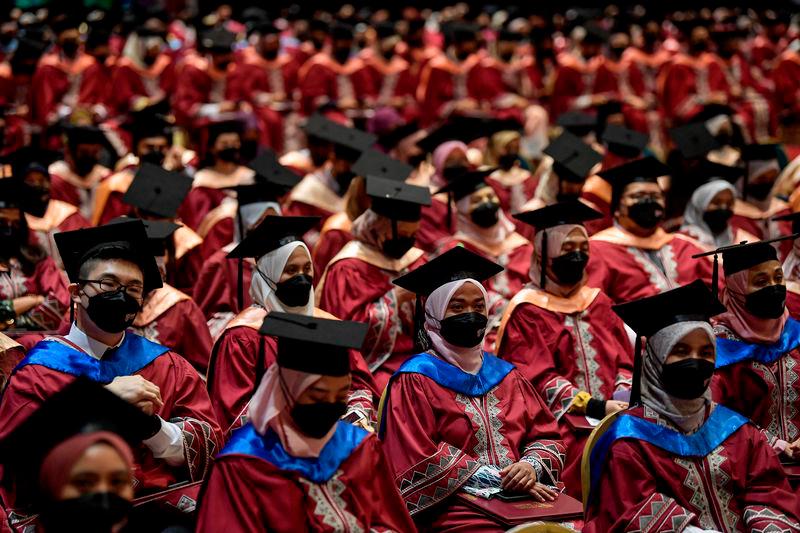THE recent release of the World Bank Education Assessment – a comprehensive global evaluation based on international standards – has issued a stark wake-up call for Malaysian colleges and universities.
In response, our sultans and state education ministers are advocating for a complete re-engineering of curriculums and syllabi across the national education system.
Let us explore these recommendations and the projected trends for achieving excellence in education.
Appearing on the front page of a newspaper recently headlined “Clarion call for quality education,” the Regent of Johor, Tunku Mahkota Ismail, urged the national government to make significant upgrades to the education curriculum, ensuring that Malaysia’s graduates are globally competitive.
He added that if no changes are made at the national level, Johor is prepared to be the first state to amend its school syllabus.
In Sarawak, state officials are also advancing dual language programmes for their schools. They have emphasised that those who will benefit most from constructive criticism are those who listen with an open mind and use suggestions to make positive adjustments.
Tunku Ismail also stated: “If we cannot accept the facts in the World Bank Report, we should not complain if our future generation is less competitive than their peers in the global marketplace.”
Furthermore, Tunku Ismail also made a powerful statement against using religion as a political tool to manipulate education or sow seeds of division.
The World Bank Report noted that despite considerable government spending, Malaysian graduates are significantly behind other countries in the areas of reading, writing, mathematics and science.
As a result, Malaysia is producing thousands of graduates with meaningless degrees, leading to widespread unemployment. Many with advanced degrees are reduced to working as delivery persons or Grab drivers just to make ends meet.
Others choose to live in Johor and commute daily by motorcycle to Singapore, where the pay is better and the exchange rate is more favourable. In both scenarios, Malaysia is the economic loser.
Upgrades to our educational system must focus on preschool education for three and four-year-olds and language proficiency in more than one language by adding English and/or Chinese to the mandated curriculum.
Additionally, STEM subjects (science, technology, engineering, and mathematics) must have strong foundations established from the early years.
Courses on the value of diversity and cross-cultural understanding should be included. Emphasis should also be placed on financial literacy, which is highly beneficial.
We must create an advanced artificial intelligence (AI) environment, focusing on global technical skills. This will give our students a head start toward a successful future.
Furthermore, we should explore the top trends and innovative ideas shaping global education in 2024.
For foundational grades, the key aspects include:
1. Reducing enrolment barriers to make public education easily accessible to all.
2. Increasing student support services (such as tutoring, vision and hearing tests and counselling) to decrease grade retention and drop-out rates.
3. Significantly enhancing the quality and relevance of all academic programmes.
For higher-level education, we should focus on six crucial areas:
1. Promoting greater diversity in the student population and academic staff to foster academic excellence and reduce opportunity gaps. Recognising the value of ethnic and racial diversity, educators should teach skills necessary for breaking down barriers to meaningful diversification. This will enhance academic excellence and prepare students for international competitiveness.
2. Increasing options for non-traditional students in colleges and universities. Many of these students are full-time employees, parents or retirees seeking to reskill or upskill for today’s job market.
3. Developing challenging and high-quality blended learning programmes at higher education institutions. This includes a variety of in-class learning opportunities alongside a broader selection of online learning formats such as Zoom conferences and webinars.
4. Establishing robust support systems to assist students in managing mental health challenges. Programmes should be designed to address stress management, depression, eating disorders and other mental health issues that hinder academic progress.
5. Prioritising efforts to bridge the skills gap. As Mauricio Macri, former president of Argentina, stated at the G20 in 2017, “Today’s work future is a race between technology and education,” a sentiment even more relevant today. Collaboration between higher education institutions and corporations is a promising strategy to address the escalating skills crisis. Corporate partnerships with university career services departments can facilitate internships and intensive programmes, potentially leading to full-time employment upon graduation.
6. Addressing the pervasive trend of AI and its profound implications for every career field. Access to quality AI education remains a challenge despite its increasing integration into university settings to automate time-consuming tasks and free lecturers’ time for student engagement. While higher learning institutions recognise the pivotal role of AI in the coming years, research indicates that only 41% have a clear AI development strategy in place. Overcoming cost barriers is crucial, necessitating a vision and budget strategy that prioritises AI education in curricula. This is essential for nurturing a competitive and cutting-edge workforce in the global economy.
It is imperative that we, along with our leaders and public officials, heed the findings of the World Bank Report and implement essential upgrades to our national education system.
While our country holds immense potential, the current shortcomings within our education system are constraining the achievements of our future generation.
Let us dare to dream big and enact the necessary changes to ensure the best opportunities for all of Malaysia’s students.
By offering university admissions universally, providing scholarships as needed, eliminating discriminatory quota systems based on race, religion or ethnicity, allowing freedom in choosing areas of study and offering equal recognition for outstanding achievements, we can retain our best and brightest talents within Malaysia.
We have the capability to achieve this. Let us work together to pave the way for a brilliant future.
Comments: letters@thesundaily.com









